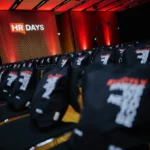One thing is clear: We’re not the same people that went home to work in early 2020. The collective experience of the past two years has left a lasting imprint, fundamentally changing how we define the role of work in our lives. Employees everywhere are rethinking their “worth it” equation and are voting with their feet. And as more people experience the upsides of flexible work, the more heavily it factors into the equation. For Gen Z and Millennials, there’s no going back. And with other generations not far behind, companies must meet employees where they are.
As leaders puzzle over how to make “hybrid work” work, big questions loom: What is the role of the office? How do teams build social capital in a digital-first world? The challenge ahead for every organization is to meet employees’ great new expectations head-on while balancing business outcomes in an unpredictable economy.
Hybrid work affects everyone—from the top floor to the sales floor. We should not forget the frontline workers as they are an essential part of your organization – they are the first to engage your customers, the first to see products and services in action, and the first to represent your brand. Many frontline workers find themselves held back by legacy tools and processes, often being the last to experience the transformational benefits of modern technology.
Today’s work environment requires new tools for your organization to thrive. Employee experience platforms (EXPs), such as Microsoft Viva, help people and teams reach their potential with communications, knowledge, learning, resources, and insights. Discover how flexible, hybrid work solutions help empower all your employees, including frontline workers.





